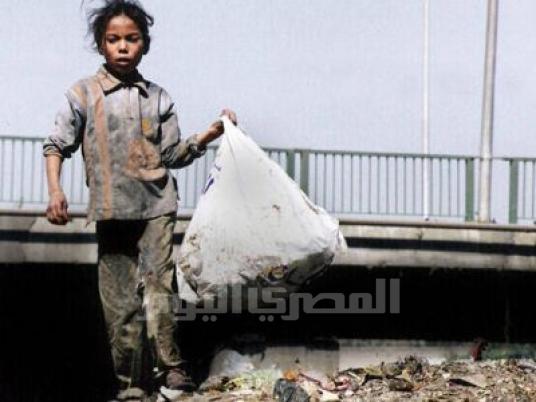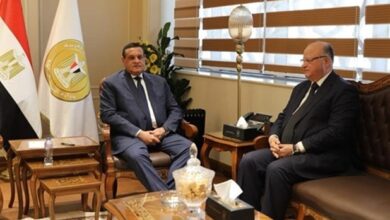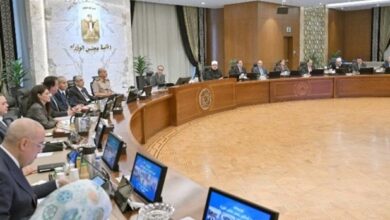
While many perceive current investigations into unregistered NGOs as a quest by the government to dominate civil society, criticism of registered bodies is abundant, which is raising concerns about further state control.
Maha Abdelrahman, a sociologist and author of a flagship 2004 study on NGOs in Egypt traces the weakness of registered NGOs’ work to state control.
Attempts to crush Egyptian civil society’s effectiveness have accelerated since the military came to power in 1952.
“Under [Gamal Abdel] Nasser, more modern forms of ‘civil society’ associations, such as syndicates, unions and NGOs, ceased to be an expression of the interests and demands of strong social forces. Instead, they were turned into, or sometimes from their inception functioned as, vehicles through which the state continued to infiltrate into and spread its dominance over society,” Abdelrahman writes.
NGOs’ financial resources have been and remain one of the main ways for the state to exert its dominance. This is done through direct ministerial supervision of registered NGOs’ budgets and expenditures, the allocation of government grants, and control of foreign funding.
Gamal Eid is the director of the Arab Network for Human Rights Information, which has not registered itself under the Ministry of Social Solidarity to evade such control.
According to him, this state control places NGOs in Egypt in one of two categories. “There are serious organizations that struggle, and others that are there just to collect funding. There is pressure on the former organizations now, like the Arab Network, but we’re determined to persist. Others, however, prefer to have a good relationship with the government.”
Many registered development NGOs are a case in point.
The agenda of many of those NGOs has often been set by the (toppled) regime’s narrative for development, in ways that lead civil society to serve the regime rather than complement it and, at times, contest it.
Alia Mossallam, who has spent the last ten years working with NGOs either through consulting or volunteering, gives an example: “Suzanne Mubarak (wife of toppled President Hosni Mubarak) decided she wanted to support anti-child labor, so we conducted research at the areas where it was most prevalent. I realized the children I interviewed worked because they weren’t learning anything at school. The focus should have been on how to make the working environment better, while improving education. But it wasn’t a conversation to be had, because Suzanne wanted a campaign against child labor,” she said.
Consultants with experience with registered development NGOs tell of wasted funds.
A source, who has worked closely with state-registered NGOs and foreign donors, and who preferred to remain anonymous, recalled to Egypt Independent the experience of monitoring their projects and the impact of their activities in the field.
Projects she monitored were part of a one-year program between 2009 and 2010 funded by the European Commission (EC) and United Nations Development Programme (UNDP).
The EC and UNDP gave money to projects led by NGOs that fall under the umbrella of the General Federation for Local NGOs (GFLN), a body that was legally registered in 1969.
The source found that some of its NGOs operated only to attract funds as opposed to in response to real need. “Egypt gets flooded with funding, so NGOs have come to know that it is a system they have to play.”
The motivation for playing the system was to ensure money kept coming in and jobs were created, the source observed.
In many cases, these programs do not lead to long-term, sustainable jobs but exist to meet short-term priorities set by donors.
A capacity-building program in Fayoum, one of the poorest provinces in Egypt, for example, included computer courses.
“This was based on the fact that local politicians had a degree in computer science, so they were able to lead the lectures. This is not necessarily wrong, but I would say it was not really what the community needed. After the program, people were still without jobs.”
Another program in Fayoum trained women in sewing and handicrafts.
“The problem is that this comes at the expense of improving Fayoum. Donors sometimes focus on nice issues, like crafts and tourist-oriented activities, instead of improving the area as a touristic place through working on its agriculture and infrastructure,” the source said.
“Also, these handicrafts are usually made for export. The woman will get LE1, while it is sold abroad or touristic spots in Sinai for LE10. And it will be made in a village in Fayoum that is shitty, because there is no sewage system or trees.”
While government control lingers, there’s also an issue described by experts as the short-sightedness of international donors.
Mossallam cites as an example a project focusing on street children funded by a British private sector company that insisted on the money being spent only in Cairo and Alexandria.
“None of the street children were from Cairo, but places outside the city. So working on a street children program in Cairo or Alexandria doesn’t solve the core problem. But they refused to work outside of the big cities, because that’s where they land,” Mossallam said.
Many development workers spoke of the limited research upon which NGOs interventions are generally based.
Yasmine Ahmed, a research consultant who has worked with local and international NGOs, says that a lack of research and access to information means many programs are initiated without a deep understanding of the issue’s complexities, and therefore lack long-term sustainability.
“There is a scarcity of research institutions in Egypt, so it is difficult to set priorities in a sustainable way,” she says.
Ahmed gave the example of projects she observed by Community Development Associations (CDAs, also known as quasi-NGOs) in villages.
“Many CDA projects are micro-credit programs for women. Often, the woman gets a small loan but that doesn’t help her get a permanent job because of the harsh socioeconomic situation, such as extreme poverty in the village, or being the sole head of the household due to an absent or sick husband. The interest on the loan is also often high compared to her standard of living,” she said.
“With high financial demands by her family, she might use the money to pay for more urgent and short-term matters such as health-related expenses, or everyday living costs, rather than on generating an income. Local NGO workers know what is happening, but they can’t stop giving the woman a loan, because they know she needs the money and meets the application criteria,” she added.
International NGOs also often rely on short-term consultants with tight budgets prior to implementing a project. These consultants, in turn, rely on local NGOs and CDAs for access to the community.
“With little resources (time and money) to actually understand the complexities of the situation, and local NGOs acting as gatekeepers to the community, projects are often implemented with an incomplete picture of the situation,” Ahmed said.




